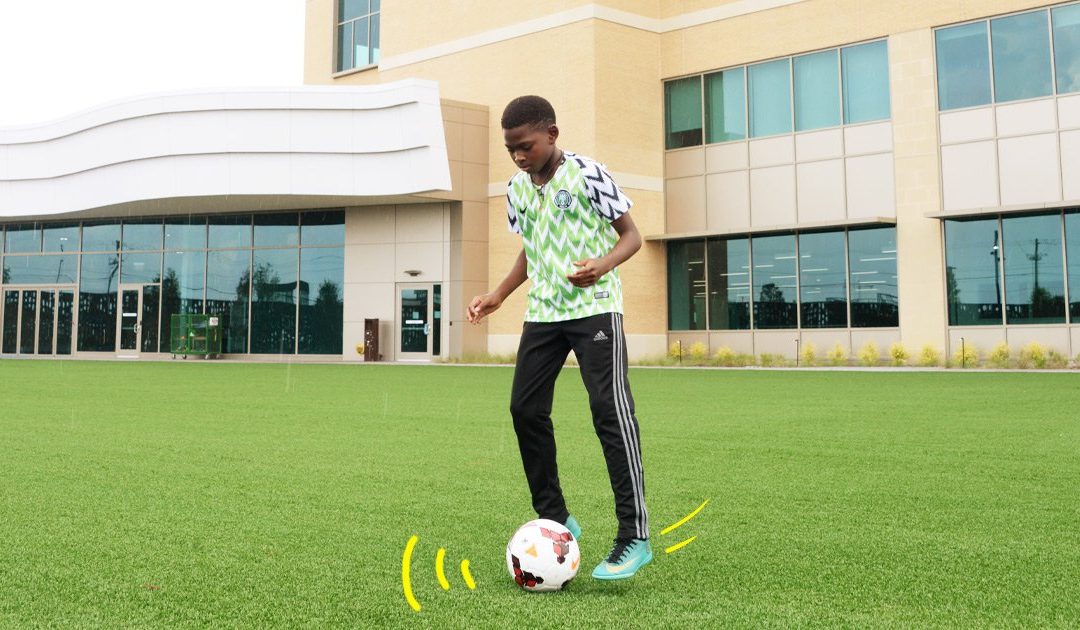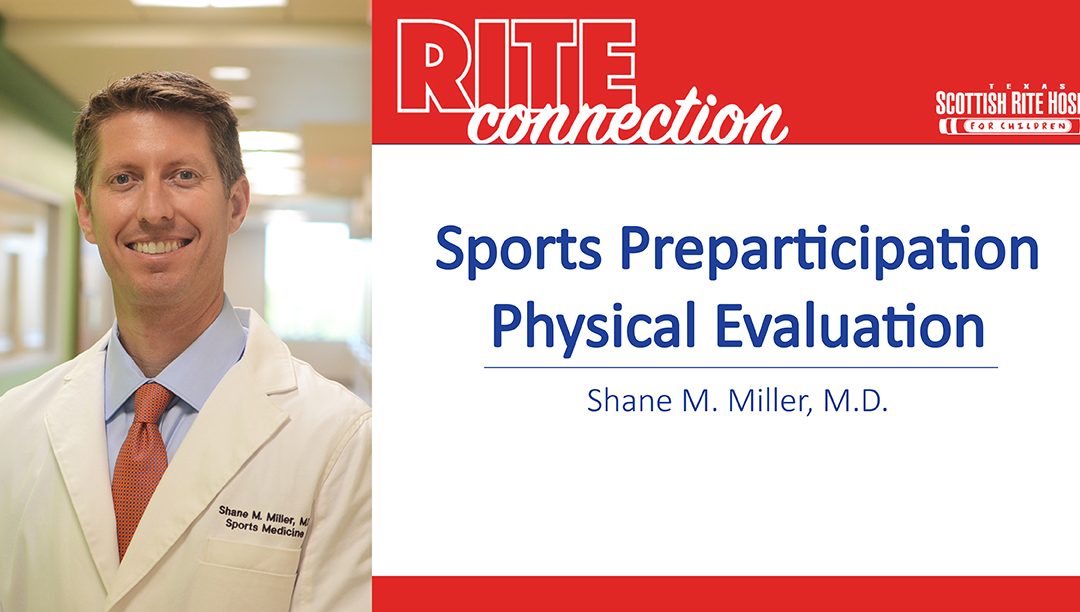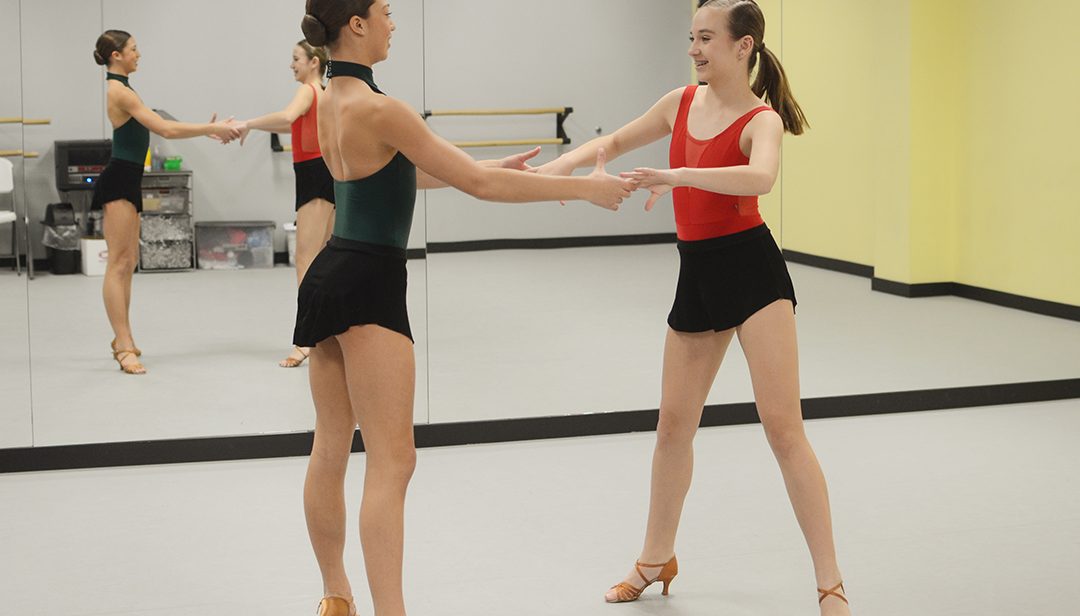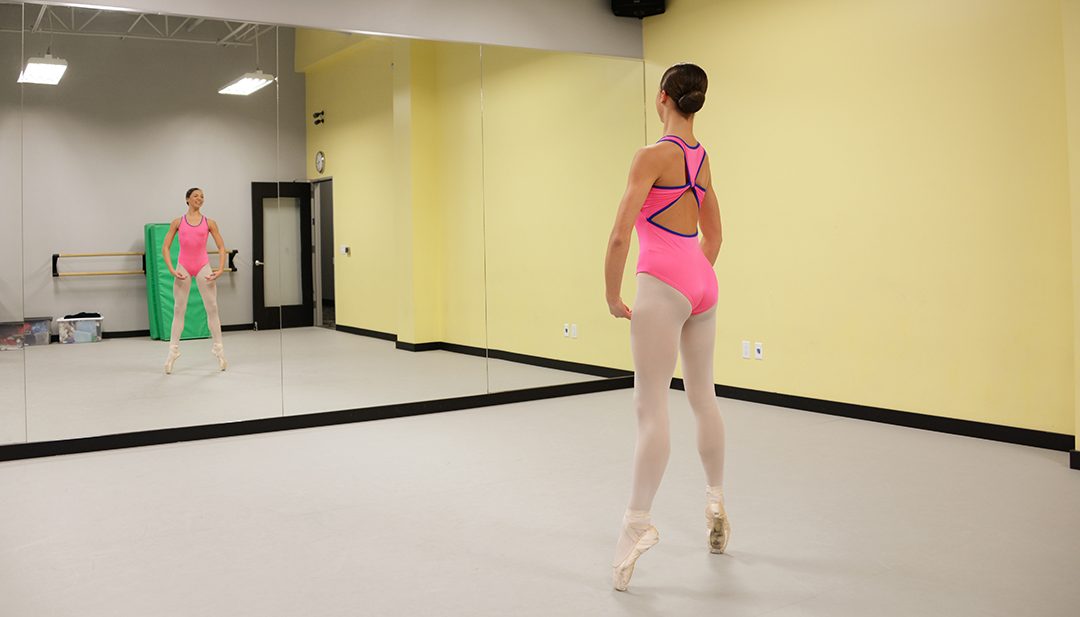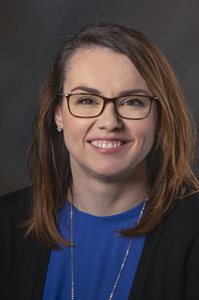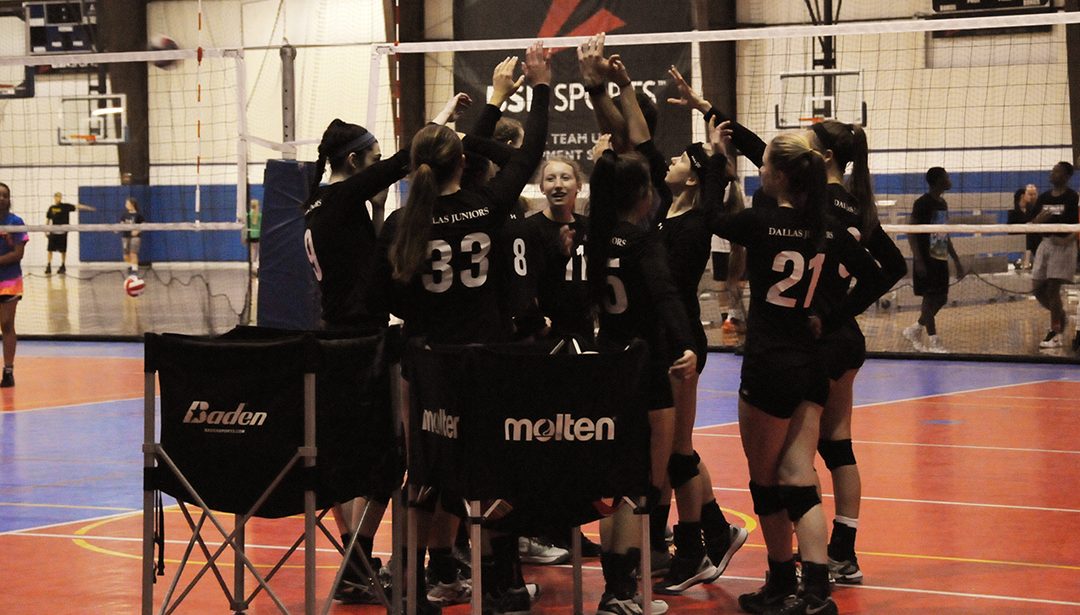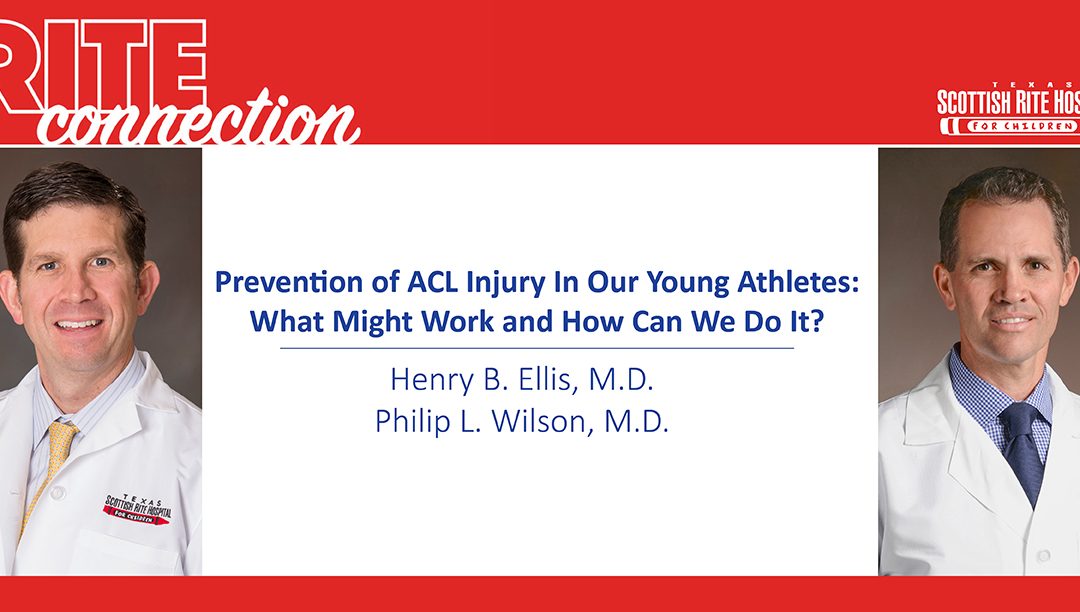
Prevention of ACL Injury in Our Young Athletes
Article originally published by pediatric orthopedic surgeon Henry B. Ellis, M.D., and Assistant Chief of Staff Philip L. Wilson, M.D., in second quarter, 2019 issue of the Pediatric Society of Greater Dallas newsletter. Key messages were also presented by Philip L. Wilson, M.D., at Coffee, Kids and Sports Medicine.
Print the PDF
Read the original research
Sports and ACL Injuries: Epidemics in Pediatrics
The dramatic increase in anterior cruciate ligament (ACL) injuries, particularly in female athletes, and an increase in surgeries in young athletes requires attention by all of us. Our research has demonstrated almost a two-fold increase in ACL reconstruction performed in female athletes since 2009. In a large epidemiology study reported by the American Academy of Pediatrics (AAP) in 2014, female soccer, basketball and gymnastics are among the top sports with highest ACL injuries rates. Male football is also considered a high-risk sport for ACL injuries.
Although there are obvious benefits of youth sport cultures, annual increases in participation rates of children and adolescents in organized and year-round sports now allows for more opportunities for injuries to occur. Youth that play soccer or other sports that require pivoting may be especially vulnerable. Although most of us want to see our kids (and patients) win, a healthy and safe attitude towards organized sports is wise.
How do ACL Tears Occur?
The ACL, which is located in the center of the knee, serves to limit rotation and forward movement of the tibia. When overloaded in a vulnerable position, without the support of coordinated muscles, the ACL (with linear collagen similar to a rope) tears or stretches when stressed beyond capacity. Often, this occurs when stopping suddenly, landing with an off-centered pelvic position, cutting or twisting movements or with a direct hit to the knee. Youth might feel a painful pop within the knee, experience their knee giving way and observe swelling when an ACL tear occurs.
The knee is often unstable with a torn ACL. Participating in sports with an unstable knee may lead to damage of other soft tissues (menisci and articular cartilage) in the knee. Therefore, surgery may be necessary.
ACL Injury Treatment
An ACL injury can often be successfully treated. An athlete who wishes to return to sports that involve jumping, cutting and pivoting, may require surgery to re-build the ligament. Even though almost all kids will return to sports, surgery in a young athlete can be stressful, traumatic and may take up to one year of rehabilitation. Although risk to the growth plate exists during this surgery, orthopedic specialists who are trained in pediatric orthopedics and routinely treat growing children with these injuries can minimize these risks to a negligible incidence.
Pediatric Sports Injury Prevention Programs
ACL Injuries and sports-related knee injuries are preventable. This has been established in numerous studies. The risk of a non-contact ACL injury may be reduced if the muscles of the central and lower body are strong and well-coordinated. Programs centered around coordination and balance, strengthening and falling techniques can improve biomechanics and help prevent injury. While there is a role for “old school” warm-ups, such as running, research has confirmed that training to improve the efficient and timely contraction of muscles to stabilize the knee (neuromuscular control) may reduce ACL injury or re-injury.
What Can Pediatricians Do to Evaluate for ACL Injury Risk?
While evaluating an athlete’s safety to participate or return to high-risk sports following an ACL injury, the pediatric sports medicine community often employs balance and strength testing. Single leg squat endurance while maintaining proper in-line knee form, drop-landing knee form, and ability to perform single leg balance maneuvers at an appropriate age and symmetry level (Y balance testing -YBT) are common measures for knee safety evaluation.
Pediatricians may consider simple screening techniques to establish high risk patients or in those who play high risk sports. Some techniques include a single leg balance assessment or a standing double or single leg squat in the office, while observing for diminishing in-line knee control (see photo). Another examination of core strength that may also be useful is to have the patient hold a plank for 60 seconds. This might best serve as a conversation starter for families with pubescents and adolescents in pivoting sports, such as soccer or basketball. A “when in doubt – refer for knee injury prevention training” strategy may be safest in this high-risk population.
The following training tips may also reduce the risk of an ACL injury:
- Encourage kids to play for fun first, and then play to win.
- Recommend variation in their sports throughout the year. This will help maintain long term athletic development and minimize overuse injuries.
- Train for activity, but be cautious of fatigue that may develop during year-round single sport play.
- Perform core body, hip and thigh strengthening exercises.
- Practice wide-based, flexed-knee squatting, jumping and landing techniques.
Education to families and youth athletes regarding these injury prevention strategies and programs is an important wellness initiative for all of us who care for these children. Contacting a community pediatric sports medicine partner is an effective way to gain more information and access to available programs. As participation in youth sports continues to rise exponentially, all of us caring for these children will continue to be challenged to provide valuable and timely “ounces of prevention” for their knees.


